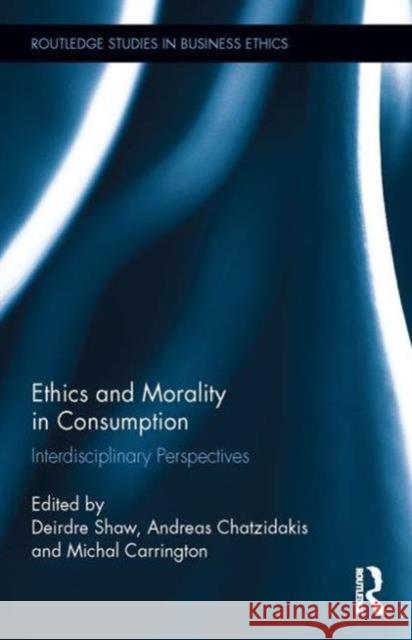Ethics and Morality in Consumption: Interdisciplinary Perspectives » książka
Ethics and Morality in Consumption: Interdisciplinary Perspectives
ISBN-13: 9781138790230 / Angielski / Twarda / 2016 / 268 str.
Ethics and Morality in Consumption: Interdisciplinary Perspectives
ISBN-13: 9781138790230 / Angielski / Twarda / 2016 / 268 str.
(netto: 746,32 VAT: 5%)
Najniższa cena z 30 dni: 730,42
ok. 22 dni roboczych.
Darmowa dostawa!
Ethical consumerism is on the rise. No longer bound to the counter-cultural fringes, the concerns and practices of ethical consumerism are reaching into the mainstream of society and are increasingly being adopted by mainstream consumers. Interest in ethical consumption is not limited to those seeking to practise it. This burgeoning movement is drawing the attention of academics, activist organisations, government bodies, journalists, media, celebrities, primary industry, manufacturing sectors, and retailers. Increasing awareness of the ethics of consumption, visibility of the consequences of unsustainable consumption, and availability of ethical products and services, has facilitated the rise of the multifaceted ethical consumer
It is said that ethical consumers have political, religious, spiritual, environmental, social or other motives for choosing one product over another and are concerned with the impact of their consumption choices on other individuals (including future generations), society, animals and the environment. In addition to the continued growth of the ethical consumerism movement, the past decade has also seen a significant shift in the breadth and scope of consumers ethical concerns. Both consumer and academic interest has expanded considerably from green/environmental issues to the complex webs of sustainable and ethical consumption. The terms ethical, conscious, socially responsible and sustainable consumerism are now used interchangeably to describe this expanding social movement of consumers who care about ethics and corporate responsibility in their purchasing decisions. Far from a homogenous collective, however, what is ethical will encapsulate different expressions, concerns and issues for each individual. These issues are often complex and involve the impacts of consumption across the entire product life cycle from cradle to grave.
This book examines several different discipline areas and provides two differing chapters to enable contrast and critical analysis both within and across disciplines. Taking an interdisciplinary approach to the understanding of ethical consumption and consumer ethics, Ethics in Consumption: Interdisciplinary Perspectives seeks to provide a platform for producing a holistic, broadened critical perspective that connects currently differing bodies of knowledge."











